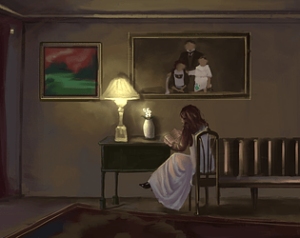Thalia Graves and the Interaction Between Literature and Life
In an age where the realms of literature and life often feel disjointed, the work of authors like Thalia Graves serves as a profound reminder that the two are inextricably linked. Through her compelling storytelling and deep insights, Graves challenges her readers to reflect on their own existence, to examine the intricate tapestries of their experiences, and to find meaning in the everyday. This blog post aims to provide an in-depth exploration of the ways in which Thalia Graves’ work intertwines literature and life, revealing the profound impact of her narratives on both personal and societal levels.
The Essence of Thalia Graves’ Work
Thalia Graves is a literary artist whose prose is characterized by its emotional depth and intellectual rigor. Her narratives often draw upon her diverse experiences, allowing her to weave complex characters and plots that resonate with a wide array of audiences. Graves possesses a unique ability to articulate the subtleties of human emotions, the nuances of relationships, and the inherent conflicts that arise from the human condition.
What sets Graves apart in the literary landscape is her commitment to authenticity. Her writing reflects an understanding that literature is not merely an escape from reality but a lens through which one can better understand life itself. For Graves, every story is a gateway to introspection, encouraging her readers to confront their own realities, challenges, and aspirations.
>>> Buy now: St. Patrick’S Day In Five Points T-Shirt
Literature as a Reflection of Life
At the core of Graves’ narrative philosophy is the belief that literature is a reflective surface for life. The characters she crafts are often drawn from the fabric of real-world experiences, mirroring the joys and sorrows faced by individuals in society. Through her protagonists, readers experience the complexities of love, loss, ambition, and identity—qualities that are universally recognized.
Take, for instance, one of her most celebrated novels, Fragments of Yesterday. In this work, Graves delves into the life of a young woman grappling with the aftershocks of a turbulent childhood. The protagonist’s journey toward self-acceptance and healing invites readers to confront their own pasts and acknowledges the scars that shape individual identities. This interaction between Graves’ literature and the reader’s life creates a symbiotic relationship, heightening the emotional stakes and fostering personal connection.
Life as an Inspiration for Literature
Conversely, one cannot ignore how life acts as a fertile source of inspiration for Graves’ narratives. During public interviews and literary discussions, Graves frequently emphasizes the significance of personal experience in her creative process. She draws upon her own struggles, triumphs, and observations of society as a reservoir for profound insights and themes in her writing.
For example, her exploration of societal inequities in Whispers of the Forgotten serves as a poignant critique of contemporary issues, such as systemic discrimination and social justice. The novel aptly captures the struggles of marginalized communities, echoing the urgent calls for awareness and action that can often be overlooked in everyday life. By illuminating these real-world issues through her narrative, Graves not only engages readers with compelling storytelling but also fosters a sense of responsibility and advocacy. In this way, her literature transcends the boundaries of fiction to become a platform for societal reflection.
The Role of Empathy in Literature
One of the most powerful aspects of Graves’ work is her ability to instill empathy within her readers. Literature, when executed effectively, offers readers a chance to step into the shoes of another, to see the world from a perspective foreign to their own. Thalia Graves excels at this, crafting characters with depth and nuance that enable readers to develop a profound understanding of diverse human experiences.
In her novel Echoes of the Heart, Graves introduces readers to a character battling terminal illness, exploring not only the personal implications of the diagnosis but also the broader emotional landscapes affecting the individual and their loved ones. The narrative invites readers to grapple with their own feelings of grief, vulnerability, and compassion. By evoking empathy, Graves forges a bridge between the literary world and everyday life, encouraging readers to cultivate a deeper connection with those around them—a crucial ability in today’s often fragmented society.
The Impact of Thalia Graves on Contemporary Literature
The interplay of literature and life illustrated in Thalia Graves’ work extends beyond her individual narratives. Her commitment to examining the human condition, addressing social issues, and fostering empathy has made a significant impact on contemporary literature. She prompts other authors to reflect on their responsibilities when creating narratives that reflect societal realities.
Graves’ influence can be seen in the growing trend of literary works that prioritize authenticity and social commentary. Emerging authors are increasingly inspired by her approach, striving to emulate the depth and richness of her storytelling while engaging with pressing cultural conversations. As literature continues to evolve, the legacy of Thalia Graves serves as a guiding light, illustrating how the interaction between literature and life can lead to not only the enrichment of literary discourse but also a more profound understanding of human existence.
Thalia Graves’ ability to fuse literature with life creates a powerful conduit for self-exploration and societal reflection. Her works serve as mirror and muse, inviting readers to reflect on their own experiences while encouraging them to engage with the world around them. In an era where the complexities of human life can often appear overwhelming or disjointed, Graves’ narratives offer a path toward connection, empathy, and understanding.
>>> Read more: Joe Hooten’s 5 Breakthrough Marketing Strategies You Can’t Miss
Through this exploration of Thalia Graves and her remarkable contributions to literature, it becomes abundantly clear that literature is far more than mere words on a page; it is a vital force that has the power to shape lives, spark conversations, and foster a deeper appreciation for the intricacies of the human experience. In a world that often seeks to compartmentalize life, Graves’ work reminds us of the profound beauty found in intertwining the two.


